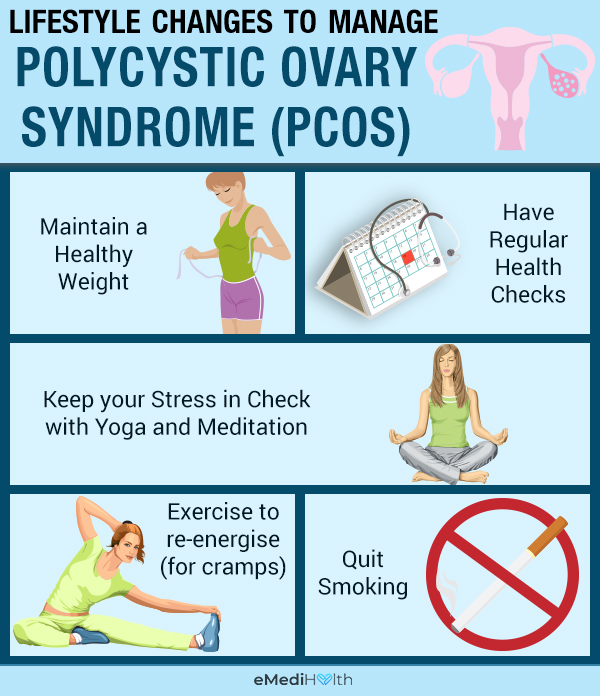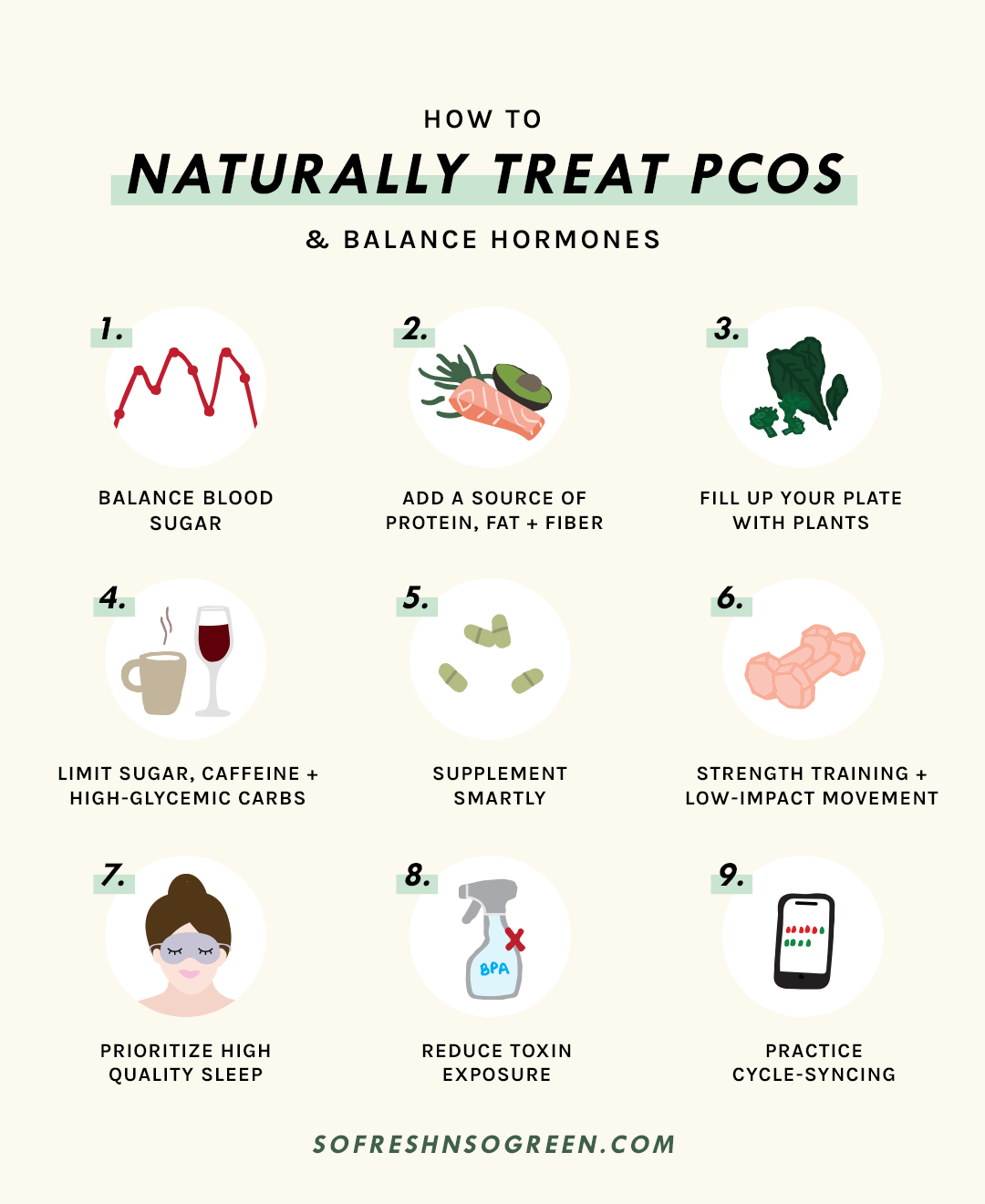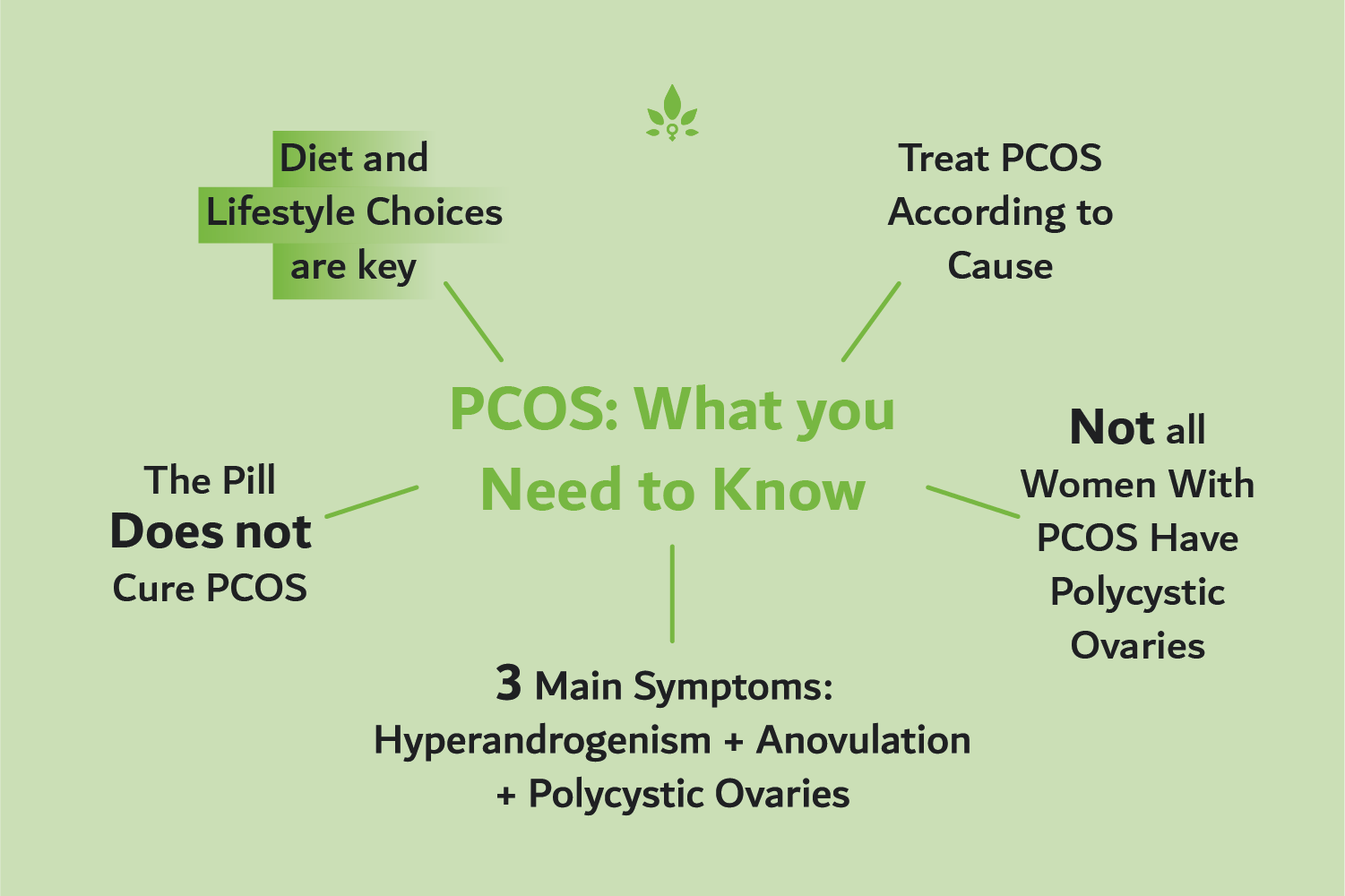PCOS Management: Lifestyle Changes
Good health is essential for the smooth functioning of every aspect of our lives. However, many health conditions that could hinder our well-being remain undiagnosed for a long time. Polycystic Ovary Syndrome (PCOS) is one such condition that affects many women worldwide. PCOS is a hormonal disorder that causes enlarged ovaries with small cysts on their outer edges. The syndrome can cause a range of symptoms, including menstrual problems, weight gain, acne, and excess hair growth on the body. Today, we will explore PCOS and provide useful information and guidance on how to manage the condition effectively.
Understanding PCOS
PCOS is a hormonal disorder that affects about 10% of women worldwide. The disorder occurs when a woman's ovaries or adrenal gland produce more male hormones than normal levels. The excess production of androgens causes cysts to form on the ovaries, leading to irregular periods and difficulty getting pregnant. PCOS can also cause a range of other symptoms, such as weight gain, acne, and excess hair growth on the body. The condition is often diagnosed during the reproductive years, but symptoms may start earlier, during adolescence.
What Is PCOS?
PCOS is a hormonal disorder that affects the ovaries, causing them to enlarge and develop small cysts on their outer edges. The disorder occurs when a woman produces too many male hormones, which can lead to a range of physical symptoms. PCOS is a common disorder that can be managed effectively through making simple lifestyle changes and seeking medical attention if symptoms persist.
Importance of PCOS Management
PCOS can have a significant impact on a woman's physical and emotional well-being. The condition can cause a range of symptoms, including menstrual problems, weight gain, acne, and excess hair growth on the body. If left untreated, PCOS can lead to more severe health problems, such as diabetes, heart disease, and cancer. Effective management of the condition can help women avoid these health risks and enjoy a better quality of life.
Statistics on PCOS
PCOS is a widespread disorder that affects women of all ages. According to the American College of Obstetricians and Gynecologists (ACOG), PCOS affects about 10% of women of childbearing age. The condition is the most common cause of female infertility, affecting up to 70% of women who have difficulty conceiving. PCOS can also increase a woman's risk of developing other health conditions, such as diabetes and cardiovascular disease.
Types of PCOS
There are two types of PCOS - insulin-resistant PCOS and non-insulin resistant PCOS. Insulin-resistant PCOS is the most common type of PCOS and occurs when a woman's body becomes less responsive to insulin, leading to elevated levels of insulin in the bloodstream. Non-insulin resistant PCOS occurs when a woman's body produces excessive levels of androgens, which can disrupt the menstrual cycle and lead to infertility.
Risk Factors for PCOS
Although the exact cause of PCOS is unknown, there are several risk factors that can increase a woman's likelihood of developing the disorder. These include genetics, insulin resistance, obesity, and hormonal imbalances. Women who have a family history of PCOS are also at a higher risk of developing the condition.
Recognizing Early Symptoms of PCOS
Early diagnosis of PCOS is essential for effective management of the condition. Some common early symptoms of PCOS include irregular periods, heavy bleeding, hair loss, weight gain, and acne. Women who experience these symptoms should seek medical attention to rule out PCOS and other underlying health conditions.
Diagnostic Tests for PCOS
There are several diagnostic tests that can help healthcare professionals confirm a PCOS diagnosis. These tests include a blood test to measure hormone levels, an ultrasound to check for cysts on the ovaries, and a physical exam to look for physical signs of PCOS, such as excess hair growth.
Awareness and Prevention of PCOS
Raising awareness about PCOS is essential for helping women better understand the condition and seek early treatment. Simple lifestyle changes such as regular exercise, a healthy diet, and stress reduction can help prevent the onset of PCOS and manage the condition. Women who have a family history of the condition should also be extra vigilant about their health and seek medical attention if any concerning symptoms appear.
Early Detection of PCOS
Early detection of PCOS is crucial for effective management of the condition. Women who experience irregular periods, heavy bleeding, weight gain, or other physical symptoms of PCOS should seek medical attention immediately. Early detection of PCOS can help women avoid more severe health problems, such as diabetes and heart disease.
Timely Treatment of PCOS
PCOS can be managed effectively through simple lifestyle changes such as diet, exercise, and stress reduction. In some cases, medication may also be required to manage symptoms such as irregular periods, infertility, and acne. Women who have been diagnosed with PCOS should work closely with their healthcare providers to develop a comprehensive treatment plan that addresses their specific symptoms and health needs.
Support and Resources
Women who have been diagnosed with PCOS can benefit from supportive resources such as support groups and online forums. These resources can provide valuable emotional support and practical guidance on managing the condition effectively. Women can also seek information and guidance from their healthcare providers and other medical professionals who specialize in treating PCOS.
PCOS Management - Image Gallery
Make These 5 Simple Lifestyle Swaps For PCOS Management

PCOS: Dietary Changes, Lifestyle Tips, and Self-Care

Your Guide To PCOS -- How To Naturally Treat PCOS, Boost Fertility & Balance Your Hormones

Unived's PCOS Management Natural Supplement

How Important are Diet and Lifestyle Choices in the Management of PCOS?

Conclusion: Polycystic Ovary Syndrome (PCOS) is a common hormonal disorder that affects women of all ages. The condition can cause a range of symptoms, including menstrual problems, weight gain, acne, and excess hair growth on the body. While the exact cause of PCOS is not known, risk factors such as genetics, obesity, and insulin resistance can make women more susceptible to the condition. The condition can be managed effectively through simple lifestyle changes such as regular exercise, healthy diet, and stress reduction. Early detection and treatment of PCOS is essential for avoiding more severe health problems, such as diabetes and heart disease. Women who have been diagnosed with PCOS should work closely with their healthcare providers to develop a comprehensive treatment plan that addresses their specific symptoms and health needs.
Komentar
Posting Komentar